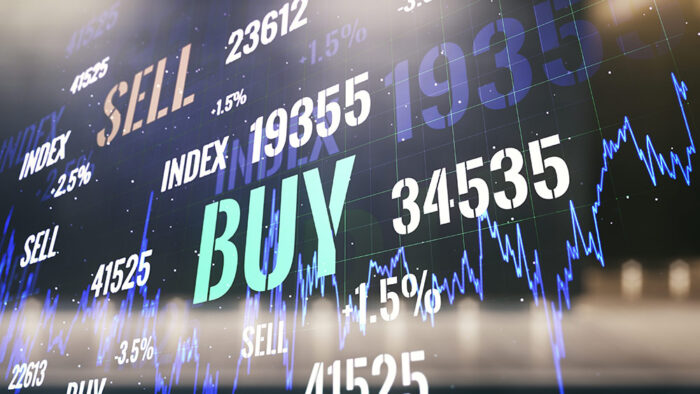Commentary
Market Recap
- Equity markets were mixed this week alongside a quiet and mostly subdued run of economic data.
- The S&P 500 rose 0.6%, led by Consumer Discretionary and Energy, while Technology took a back seat for a change. The index is now up a hefty 25% in the past year amid disinflation and sturdy growth.
- Meantime, the TSX dipped 0.4%, with Technology, Utilities and banks weighing. While still solid, the 10% one-year gain in Canadian stocks continues to lag their U.S. peers.
Note: Sadiq Adatia is away this week. Filling in is Fred Demers, Director, Multi-Asset Solutions.
Canada vs. U.S.
If you look beyond this month, or even this year, it’s been a difficult time for Canadian equities relative to the United States. In fact, it’s been challenging for just about every market versus the U.S. The comparative lack of Technology in the Canadian market and stronger overall U.S. economic momentum are among the factors contributing to the gap between the two countries’ equity markets. Concerns about trade wars are also rising, with a second Trump administration potentially on the horizon and the Biden administration already increasing tariffs on Chinese electric vehicles (EVs). These tariffs are theoretical in a sense because China isn’t exporting many EVs just yet, but the writing is on the wall—soon, they’ll be flooding the market, and retaliation is possible. This ratcheting up of trade tensions is part of the broader trend of ‘reshoring’—the U.S.’s attempt to shift manufacturing away from places like China and back to America and its close allies. Canada isn’t currently benefitting from those efforts; it’s more of a Mexico story, with the U.S. investing more in that country. (Interestingly, China is also investing more in Mexico in an attempt to get around U.S. tariffs.) To return to Tech: it is shielded somewhat from these trade tensions because China isn’t a core market for its products. That’s contributed to its market-leading performance and is another reason why U.S. equity markets have outpaced their Canadian counterparts.
U.S. economic resilience and the relative lack of Technology in Canadian markets are driving the gap between U.S. and Canadian equities, with Canada also failing to benefit from U.S. reshoring efforts.
Bond Volatility
Recently, we’ve seen more volatility in bonds than in equities. What does this imply for asset allocators, and should investors expect it to continue for the rest of the year? It’s important to first consider the source of the volatility. Equity markets have been forced to digest the fact that the U.S. economy will likely remain stronger for longer, and that corporate earnings will therefore also be stronger. As a result, the fear of the impact of high rates has diminished. That leaves the bond market on its own to evaluate the potential timing of rate cuts. It’s this uncertainty that has caused volatility in fixed income—predicting the U.S. Federal Reserve’s (Fed) actions is rarely easy, and it’s been especially challenging lately because economic data over the past couple of months has been more ambiguous. There does appear to be increasing comfort in bond markets that two rate cuts can be expected this year, most likely in September and November or December. Talk of a rate hike appears to be over, which means that asset allocators should feel more comfortable coming back to bonds. That said, the duration play will not be easy to execute; the yield curve remains inverted and the 10-year rate is a real question mark because a mild rate-cut cycle could leave long-term yields little changed. Duration plays tend to be most beneficial during hard-landing scenarios, which appears unlikely in the U.S. By contrast, in our view, slower growth makes Canadian duration potentially more attractive.
Bottom Line: Economic resilience and strong earnings have given equity markets the luxury of ignoring the interest rate debate to a degree, while bond markets have had no choice but to play the Fed’s game, leading to heightened volatility.
Europe
Political winds are changing in Europe. Polls show that the Labour party is likely to secure a majority government in the U.K. general election on July 4, while Marine Le Pen’s National Rally are the favourites to win France’s parliamentary elections, to take place in two rounds in late June and early July. This increases uncertainty in both of those countries and, to a certain extent, the rest of Europe as well. The good news for investors is that, as we saw with Brexit, contagion from domestic political developments tends to be limited across the continent. Despite political noise, both the U.K. and France are on the path of improving growth outlooks. The political risks for markets have also changed—it used to be that right-wing parties gaining steam meant the potential breakup of the European Union (E.U.). More recently, however, the platforms of parties like Le Pen’s National Rally have shifted somewhat towards the middle. Italy is a good example: in the past, some in Italy’s right wing have supported “Italexit”—Italy’s proposed departure from the E.U. But since the election of right-wing prime minister Giorgia Meloni in 2022, her party hasn’t made it a priority.
From a market perspective, elections in the U.K. and France are likely to be more signal than noise, though they may cause some short-term volatility.
Positioning
For a detailed breakdown of our portfolio positioning, check out the latest BMO GAM House View Report, titled Shifting to Neutral: The Case for Optimistic Caution.
—
Originally Posted June 24, 2024 – Chairman Powell: The Ultimate Bond Villain?
Disclosures:
The viewpoints expressed by the Portfolio Manager represents their assessment of the markets at the time of publication. Those views are subject to change without notice at any time without any kind of notice. The information provided herein does not constitute a solicitation of an offer to buy, or an offer to sell securities nor should the information be relied upon as investment advice. Past performance is no guarantee of future results. This communication is intended for informational purposes only.
BMO Global Asset Management is a brand name under which BMO Asset Management Inc. and BMO Investments Inc. operate.
Any statement that necessarily depends on future events may be a forward-looking statement. Forward-looking statements are not guarantees of performance. They involve risks, uncertainties and assumptions. Although such statements are based on assumptions that are believed to be reasonable, there can be no assurance that actual results will not differ materially from expectations. Investors are cautioned not to rely unduly on any forward-looking statements. In connection with any forward-looking statements, investors should carefully consider the areas of risk described in the most recent simplified prospectus.
This article is for information purposes. The information contained herein is not, and should not be construed as, investment, tax or legal advice to any party. Investments should be evaluated relative to the individual’s investment objectives and professional advice should be obtained with respect to any circumstance.
Commissions, management fees and expenses (if applicable) all may be associated with investments in mutual funds. Trailing commissions may be associated with investments in certain series of securities of mutual funds. Please read the fund facts, ETF facts or prospectus of the relevant mutual fund before investing. Mutual funds are not guaranteed, their values change frequently and past performance may not be repeated. Distributions are not guaranteed and are subject to change and/or elimination.
For a summary of the risks of an investment in the BMO Mutual Funds, please see the specific risks set out in the prospectus. ETF Series of the BMO Mutual Funds trade like stocks, fluctuate in market value and may trade at a discount to their net asset value, which may increase the risk of loss. Distributions are not guaranteed and are subject to change and/or elimination.
BMO Mutual Funds are managed by BMO Investments Inc., which is an investment fund manager and a separate legal entity from Bank of Montreal.
Disclosure: BMO Exchange Traded Funds
Commissions, management fees and expenses all may be associated with investments in exchange traded funds. Please read the ETF Facts or prospectus of the BMO ETFs before investing. Exchange traded funds are not guaranteed, their values change frequently and past performance may not be repeated.
For a summary of the risks of an investment in the BMO ETFs, please see the specific risks set out in the BMO ETF’s prospectus. BMO ETFs trade like stocks, fluctuate in market value and may trade at a discount to their net asset value, which may increase the risk of loss. Distributions are not guaranteed and are subject to change and/or elimination.
BMO ETFs are managed by BMO Asset Management Inc., which is an investment fund manager and a portfolio manager, and a separate legal entity from Bank of Montreal.
®/™Registered trade-marks/trade-mark of Bank of Montreal, used under licence.
Disclosure: Interactive Brokers
Information posted on IBKR Campus that is provided by third-parties does NOT constitute a recommendation that you should contract for the services of that third party. Third-party participants who contribute to IBKR Campus are independent of Interactive Brokers and Interactive Brokers does not make any representations or warranties concerning the services offered, their past or future performance, or the accuracy of the information provided by the third party. Past performance is no guarantee of future results.
This material is from BMO Exchange Traded Funds and is being posted with its permission. The views expressed in this material are solely those of the author and/or BMO Exchange Traded Funds and Interactive Brokers is not endorsing or recommending any investment or trading discussed in the material. This material is not and should not be construed as an offer to buy or sell any security. It should not be construed as research or investment advice or a recommendation to buy, sell or hold any security or commodity. This material does not and is not intended to take into account the particular financial conditions, investment objectives or requirements of individual customers. Before acting on this material, you should consider whether it is suitable for your particular circumstances and, as necessary, seek professional advice.



























Join The Conversation
If you have a general question, it may already be covered in our FAQs. If you have an account-specific question or concern, please reach out to Client Services.